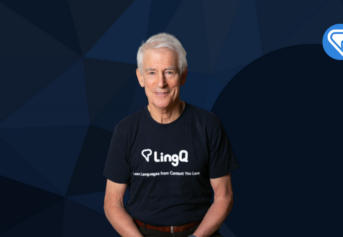First of all, obviously when you start in a language, whatever you’re listening to is not comprehensible. So you can’t begin with comprehensible input. You’ll begin with input, which is not comprehensible, but which gradually becomes more and more comprehensible. However, if you have access to the text, so you can look up words, then you have a chance. And if you can use LingQ for example, and you can review the words, then you have a chance, or even if you’re using Teach Yourself or some other starter book you can gradually get to where material that is initially not comprehensible becomes comprehensible.












